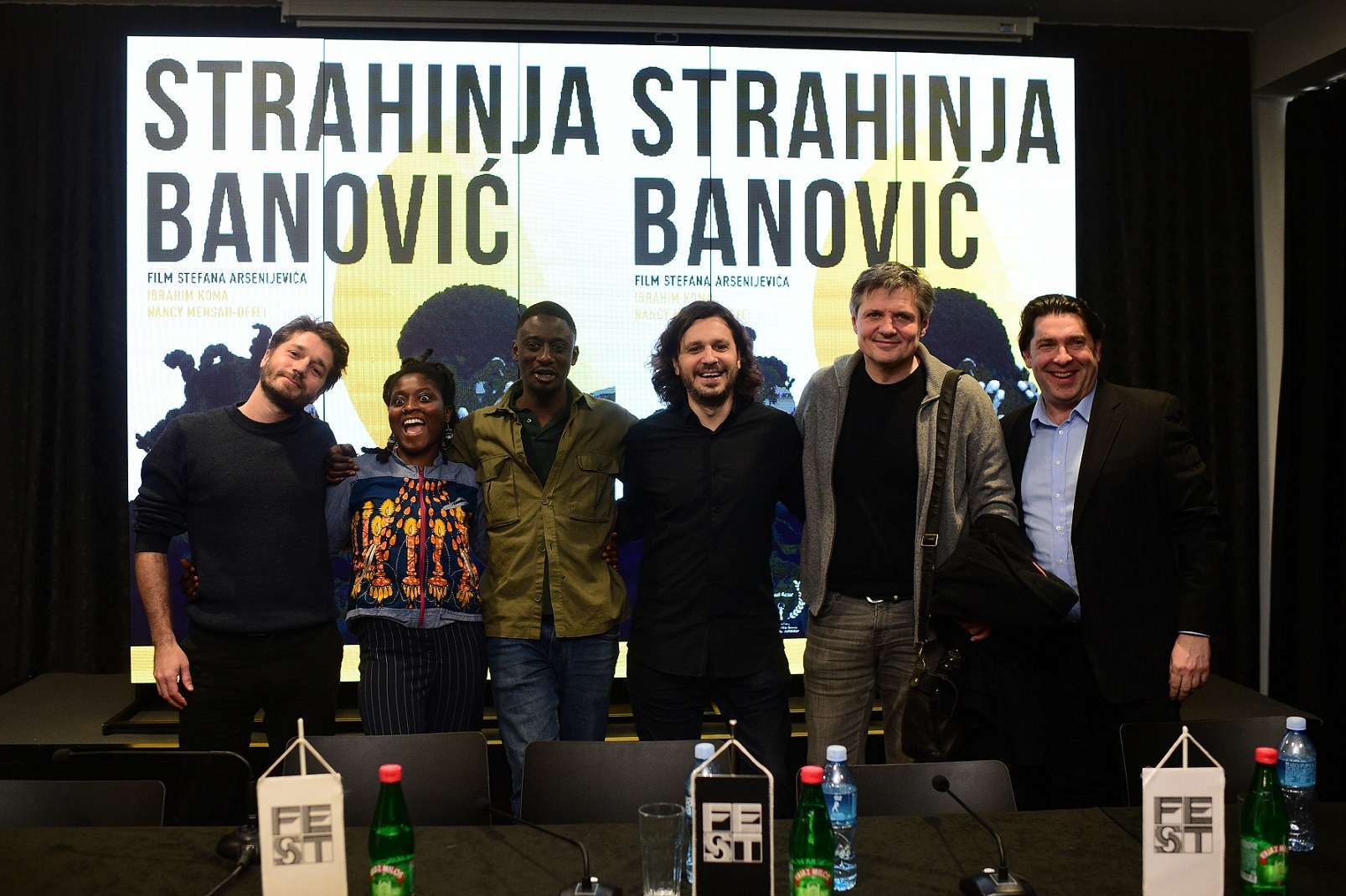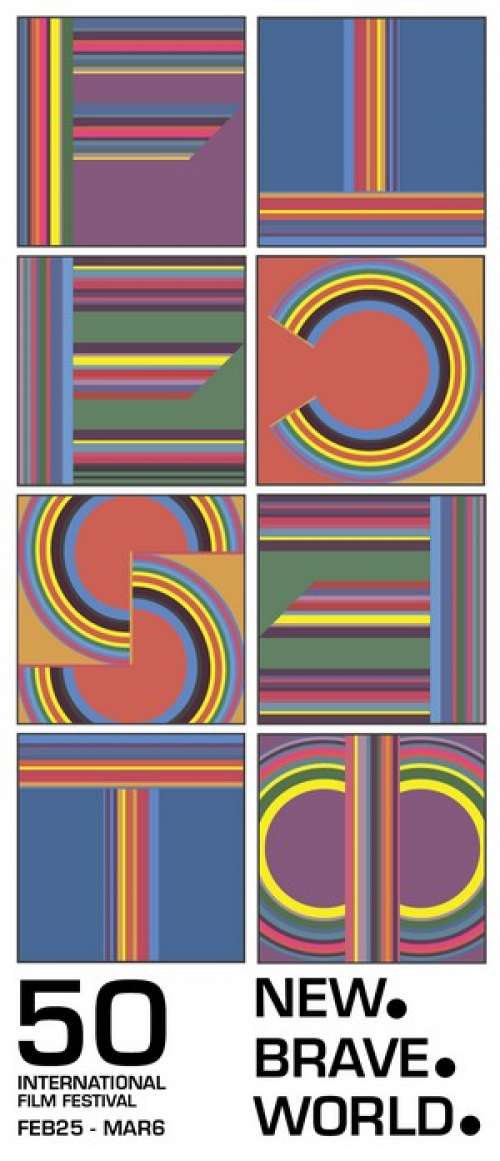Stefan Arsenijević pointed out that he felt great excitement because it was a huge honour for him to open the jubilee edition of FEST.
- I still vividly remember my first FEST 30 years ago. That 1992 was a bad year for many things, but a good one for the film. I remember, the film ‘Virgina’ by Srdjan Karanović opened FEST, the guests were Johnny Depp and Jim Jarmusch, we saw ‘High Heels’, ‘Until the End of the World’, ‘Europa’, ‘Thelma and Louise’ ... it was absolutely amazing ... I was 14 and that changed everything for me. I realized that the world is big and that there are a lot of exciting stories in it. It was a feeling of wealth, a feeling that Belgrade was the world in those days and a feeling that we could learn something new about that the world by watching films. That feeling has never left me: I have been a faithful spectator of FEST for all these 30 years. In that sense, it is clear that it is a great pleasure for our film to be at the opening of the jubilee FEST.
‘As Far as I Can Walk’ is a film inspired by the epic song of the same name, in which contemporary African migrants take the place of Serbian national heroes. It is a film about identity, race and tradition, and above all a film about love. Arsenijević says that it all started with the refugee crisis that was happening before our eyes.
- I found information that over a million people have passed through Serbia in the past few years. I remember those lost, tired faces at every step ... I had the feeling that something dramatic was happening in front of us and, in a global context, big and important; indeed, it was and still is. It is the biggest refugee crisis since the Second World War, I would say the biggest migration of people.
Somehow, I had the feeling that in the media these people were presented as numbers, statistics, sometimes even a threat, and then I started talking to them, met them and realized that a good part of them look like me, that they are educated, from middle class. What was especially touching for me is that a large number of them wear the best clothes they have during that journey, because they want to show themselves in the best light in that situation as well - Arsenijević pointed out.
In the conversation with them, he realized that, although most of them want to go to the West, some of them wanted to stay in Serbia.
- I was especially interested in the migrant from Ghana, Ibrahim Ishak, who served as the inspiration for the main character in my film. Ibrahim wanted to be a professional footballer and trained with a local club, but he could not play official matches until he was granted asylum, which is a long and uncertain process. He waited for years (in the end, he was not granted asylum) and at that moment he was full of enthusiasm: he volunteered for the Red Cross, he learned our language and learned it well, he tried in every way to remain a part of our society. His enthusiasm was very touching and interesting to me. We are champions in whining, nothing is always good for us, and here is a young man who really wants to start a new life with us.
And then it occurred to me, since I have been thinking about a modern adaptation of Banović Strahinja for a long time, what if someone like that young man was, in fact, the new Banović Strahinja of today and what if he survived everything that happens in the song - explained Stefan.
That is how the story with a fundamentally humanistic idea was born.
- Film as a medium can very well enable you to easily recognize yourself in someone else on the screen, so I hope that we will understand that migrants are the same as us. On the other hand, I hope that this film will give some people a little deeper insight into our tradition, shed new light on it, but also on the situation that migrants are going through on their very long and uncertain path - said Arsenijević.
A French actor originally from Mali, Ibrahim Koma, who plays Banović Strahinja, admitted to not reading the song.
- I learned about my character from long conversations with Stefan. He didn't want me to read the poem, because he wanted me to provide a performance rooted in today's world. Still, it was important to me that the idea of forgiveness be present throughout the film. My character is a hero; although he is a migrant, he has many things to offer. He is not materially rich, but he is rich in heart - Ibrahim Koma pointed out.
Before the start of filming, he spent several months in Serbia, where he spent unforgettable moments.
- It was very important for me to come here and get to know the culture, primarily through people. There was a lot of information that I collected and put in the service of my character. I spent a lot of time with Stefan talking about how we will work on the film, I tried to learn a little bit of the language, we visited the House of Flowers and the Nikola Tesla Museum. There was a lot of good food, good music, and of course, brandy. All of these things were very important that helped me shape my character and explain the vision he conveys.
The role of Strahinja's unfaithful wife Ababuo is played by the Austrian-Ghanaian actress Nancy Mensah-Offei.
- In my opinion, Ababuo is the bravest character in the film. She is in a situation where she does not feel good and where she is not happy, and it takes a lot of courage and energy to get out of it. Even when you are in some small, everyday situations, you need to have the courage to get out of them, to jump into cold water without knowing what will happen - said Nancy Mensah-Offei.
Nebojsa Dugalić plays a taxi driver who transports migrants and represents one of the most honorable characters from the Serbian side in the film.
- Today, unfortunately, the question of honour is quite relativized. When people are forced to, constantly present, bare survival, then questions of honor become questions of the second order. My character as a taxi driver is a representative of our milieu and context. He is forced to earn some living by helping some people reach their goal - even though it is an illegal job.
My character is an episode character, but I am glad to see the spirit of a time when that taxi driver exists through that minimalist dramaturgical procedure, the pain of a small, ordinary man who thought he would earn some money to educate his daughter. It is a touching, grotesque and shocking situation - Dugalić explained.
The co-writer from France, Nicolas Ducray, humorously explained what it looks like to write a screenplay in six hands (with Stefan Arsenijević and Bojan Vuletić):
- By talking a lot, and then drinking a little brandy, so that it becomes even easier for you to tell and make up stories. Joke aside, it was very playful and joyful to work with Stefan and Bojana - Ducray emphasized.
He added that the script called ’The Invisible’ was originally created, which took place only in a taxi in which the character of Nebojsa Dugalić transports migrants. That script did not come to life, and it was changed with the idea of Strahinja Banović. During the scouts work in Šid, ‘at a time when Orbán (President of Hungary) had already erected his terrible wall because of which migrants had to return and go through Croatia,’ an interesting situation occurred, Ducray said.
- At first, I was struck by the fact that all Red Cross volunteers thought of Stefan and me as migrants and welcomed us. Our first reaction was, ‘No, of course we are not migrants, where did you get that idea?!’, but after a few seconds we realized that it was sad, because migrants are people like you and me. That is when we decided to shape the story of people and what connects them - love - and that became the core of our story - said Ducray.
Producer Miroslav Mogorović pointed out that he was very pleased to have participated in the film that opens FEST, a festival where he himself had worked for years, and where he had gained his first job.
- I began do this job thanks to the cooperation with Nena Đonlić within the Film Editorial Board of the Sava Centre - said Mogorović and then prepared a surprise for Stefan and the cast and crew, informing them that they had just secured the rights to distribute the film to the USA, Canada and the Caribbean.
- It is nice that our cultural matrix has the capacity to be recognized around the world - Mogorović pointed out.
Since the world premiere of the film in Karlovy Vary, six months ago, ‘As Far as I Can Walk’ has visited about twenty other festivals and won 15 awards. It will continue its festival life during the summer in Serbia, and it will enter domestic cinemas in the second half of September. There will be six screenings at FEST: apart from the opening on February 25 in the Kombank Hall at 7.30 p.m., the film is scheduled for February 26 in Hall 1 of the Kombank Hall (10 a.m.), Hall 3 of the Cineplex Galerija (5 p.m.), the Cultural Centre of Belgrade Movie Theatre (7.30 p.m.), Hall 5 of the Cineplexx Galerija (9 p.m.) and on February 27 in the Fontana Cinema at 7 p.m.









